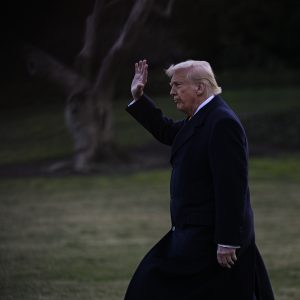Biden Urged to ‘Do Better’ After Pardoning or Commuting Sentences of Just 78 People
After U.S. President Joe Biden on Tuesday used his clemency powers for the first time—well over a year into his presidency—criminal justice reform advocates called on him to go even further to tackle mass incarceration.
Biden announced in a statement that he was pardoning three people and commuting the sentences of 75 others with nonviolent drug offenses. The president also revealed new steps his administration is taking “to support those reentering society after incarceration.”
Framing Biden’s pardons and commutations as “just modest steps,” Inimai Chettiar, federal director of the advocacy group Justice Action Network, encouraged him “to meet the urgency of the moment.”
“President Biden ran on a promise to help end mass incarceration, and he has broad public support for that promise,” Chettiar told the Associated Press.
Various polls “have shown that voters support the president using his clemency powers in a bold manner,” Cynthia W. Roseberry, deputy director of the group’s Justice Division, pointed out. “This early use of clemency power is a good first step in the long road to end mass incarceration, but there is a lot more work to be done if the president is to fulfill his commitment to justice and equity.”
Roseberry highlighted that the United States is responsible for “20% of the world’s prison population despite comprising only 5% of the global population, with Black people 10 times more likely to be incarcerated for drug offenses than anyone else.”
“At a cost of $80 billion annually, the carceral system is a behemoth albatross for justice and equality,” she said. “The grant of clemency plus the initiatives announced as wraparound services is essential to returning people to their communities and to their families.”
As Biden detailed Tuesday, the services include “a new collaboration between the U.S. Department of Justice and the U.S. Department of Labor to provide job training; new grants for workforce development programs; greater opportunities to serve in federal government; expanded access to capital for people with convictions trying to start a small business; improved reentry services for veterans; and more support for healtcare, housing, and educational opportunities.”
The president explained that he was pardoning people “who have demonstrated their commitment to rehabilitation and are striving every day to give back and contribute to their communities.”
“I am also commuting the sentences of 75 people who are serving long sentences for nonviolent drug offenses, many of whom have been serving on home confinement during the Covid pandemic—and many of whom would have received a lower sentence if they were charged with the same offense today, thanks to the bipartisan First Step Act,” Biden added, referencing legislation signed into law by his predecessor.
“While today’s announcement marks important progress,” he said, “my administration will continue to review clemency petitions and deliver reforms that advance equity and justice, provide second chances, and enhance the well-being and safety of all Americans.”
Originally published at Commondreams.org, written by Jessica Corbett.









